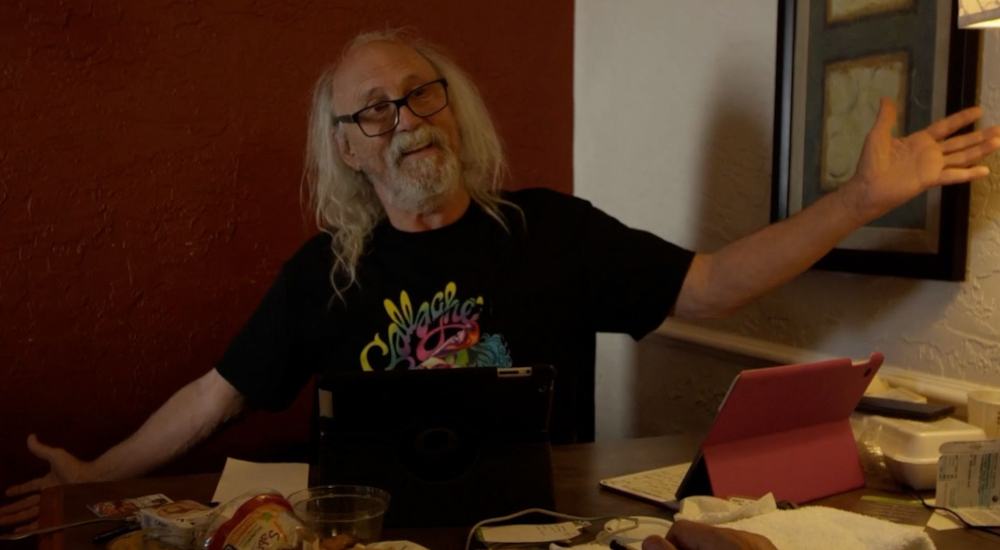What do you do with a documentary whose subject is dead, was uncooperative with the director while he was alive, and is generally regarded by most people who encountered him as difficult to get along with at best? If you're director Josh Forbes, you make the best of a bad situation, using a treasure trove of archival footage, and good interviews with family, colleagues, and fans.
But I kept coming back to what the late comedian repeats often throughout the film: "Why make this? I'm not that interesting." There's surely the germ of a compelling story here: Gallagher went from the biggest stand-up of the 1980s to playing smaller and smaller venues until he got too sick to continue. But his downward trajectory is all too familiar. He got divorced many times, waged legal battles, and made bad investments. Even sadder is his shift from clever wordplay and visual gags to racist and transphobic "jokes."
Make no mistake: This is not a bad documentary or a poorly made one. It's just an often unpleasant experience that never quite grapples with the conflict between the assertion that Gallagher was not only a "comedic genius" but also a bad partner, a bad parent, and sometimes a bad person, too. Past docs on comedians with similar issues, like What's Eating Ralphie May? and The Amazing Johnathan Project, threaded this needle much more deftly.
Still, it's quite odd to observe what a phenomenon this guy was in the '80s. Even before he began smashing watermelons with his "Sledge-O-Matic," audiences around the country – and later on Showtime – would go absolutely nuts for his contraptions, puns, and random observations. But some of these jokes are weak, even by the standards of Laffy Taffy wrappers. It's easy to see why he was an easy target for the likes of Jerry Seinfeld and Dave Chappelle.
In fact, the funniest moment of the film comes early on. Outside a comedy club, a fan approaches Gallagher and he coaxes her into buying a T-shirt while the song "Best Day of My Life" blares on the speakers. It's an ironic moment, but I doubt he would have appreciated it. If you were a fan, you'll enjoy this look at the comedian's life and death. If you were too young or hated his brand of humor, there's not much juice in this melon.

